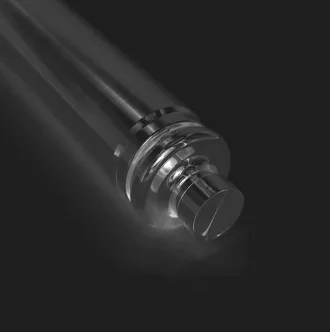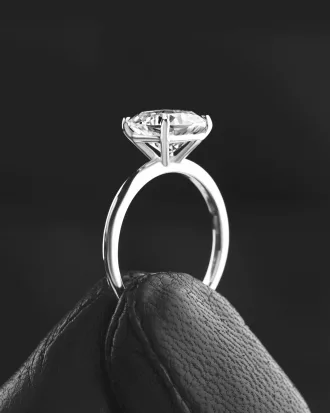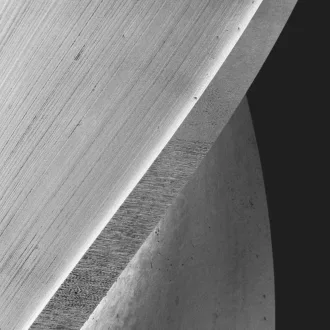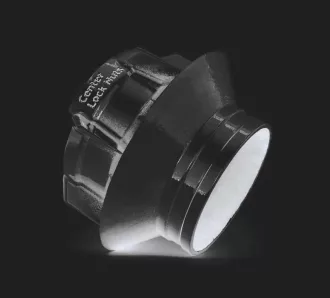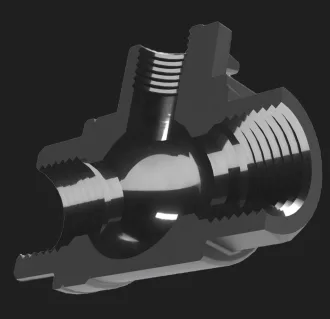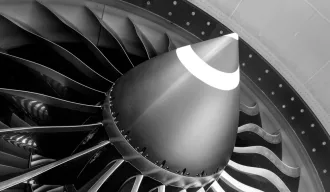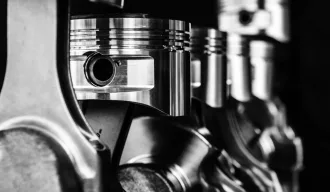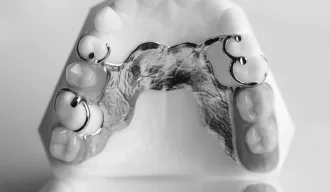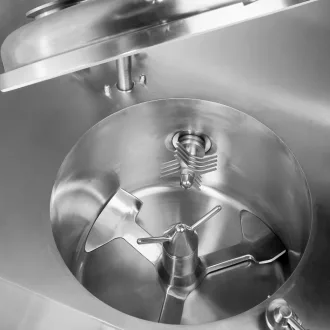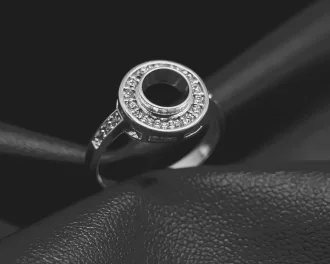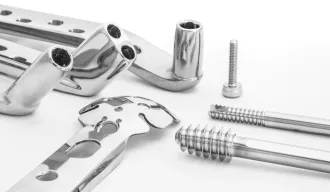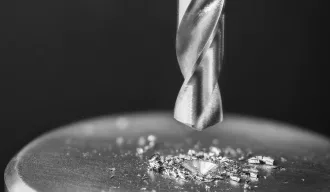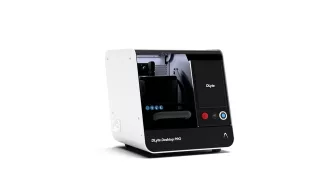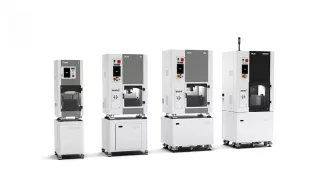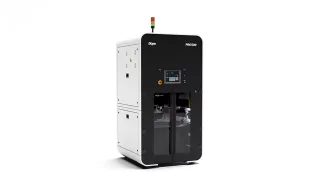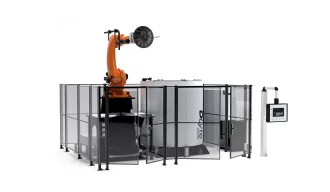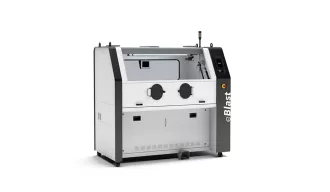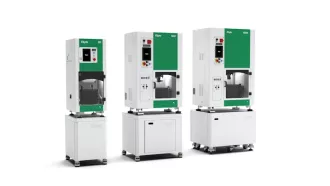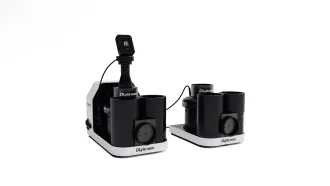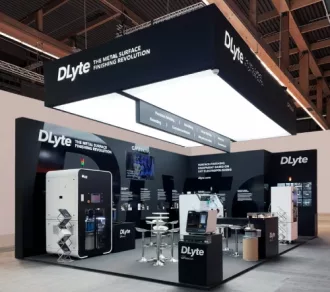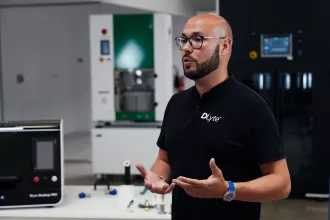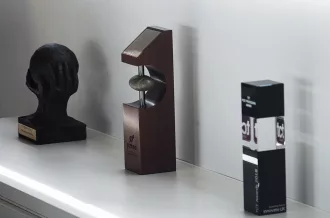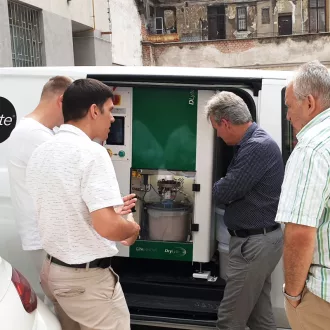The medical industry is continually evolving and testing new materials and technologies to make medical devices better and more functional, and to increase their lifespan. Cleanability, biocompatibility, corrosion resistance, pathogen resistance and a smooth surface without defects are crucial to comply with the function and demand on quality of the medical device industries.
Improving the surface’s quality on medical implants, instruments and components of medical equipment increases functionalities as well as their lifespan.
DryLyte Technology is the new standard in metal surface finishing for the medical device industry. The dry electropolishing solution enhances existing surface finishing solutions for medical industries with precision, reliability and efficiency.
The technology is able to perform different finishing process as grinding, rounding and deburring to surface smoothing, improvement of corrosion resistance and high-gloss polishing of orthopedic implants, medical instruments and components of medical equipment which requires defect-free, smooth and ultra-clean surfaces.
DLyte machines use the DryLyte Technology for the surface finishing of the most common metal alloys in the healthcare and medical device industry, as stainless steel, cobalt-chrome, titanium and nitinol.
GPAINNOVA works closely with medical device industries experts to develop and deliver surface finishing processes to meet the stringent standards of this sector.

Benefits and applications of DLyte electropolishing processes

The dry electropolishing technology is a novel electrochemical process that improves the result of current finishing technologies. It overcomes the barriers of liquid electropolishing and abrasive polishing using solid particles that act in a localized manner at each point of the surface, to remove material by ion exchange.
As it is a non-abrasive treatment it does not round off the edges and avoids a lack of effect on internal corners because of reduced movement and energy.
Some of the most important applications of our technology for medical device industries are:
- Mouth and jaw implants
- Shoulder joints, arm plates and hand implants
- Vertebrae/spinal implants
- Hip, hip stem, hip femur head implants
- Acetabulum and pelvis implants
- Upper leg, upper knee, lower knee and ankle joints
- Stents and needles
- Medical device components such as tubes and fittings
- Medical instruments such as cutting bone blades
Why is DryLyte important for the medical industry?
Current surface finishing solutions tend to present some issues, as they are error-prone. It is hard to certify a specific success-scale as they do not offer consistency on results.
Those processes are not enough reliable and require additional manual rework to achieve the desired finishing, manufacturing also implies the scrapping of faulty parts. Moreover, this equipment requires additional costly peripheral equipment to treat the water and sludge contaminated with metals that require specific maintenance and negatively affecting our environment.
A severe incidence in manufacturing different medical devices refers to the large variety of post-processing steps, even involving manual labor or complex multistep processes. Since the goal is improving QoL and health condition, products must be manufactured in a way that prevents the patient from additional risks.
Some parts just need to be slightly rounded and clean, and many of them need intensive processing, so they have to be polished to work correctly. If a medical product is manufactured negligently or without considering surface quality, it can cause corrosion, premature fracture and consequent rejection. Corrosion, in this case, is causing metal to enter the patient’s bloodstreams and resulting in blood poisoning.

Some applications

Knee implants & femoral components
Material: CoCr
Manufacturing: Casting or milling
Pre-processing: Abrasive (ceramic + plastic)
Application: Mirror finish
Achieved Ra: < 0.05 μm
Processing time: 64 minutes (24 parts)
DLyte equipment: DLyte PRO500

Acetabulum
Material: CoCr
Manufacturing: CoCr
Pre-processing: Sandpaper
Application: Mirror Finish
Achieved Ra: 0.02 μm
Processing time: 60 minutes (24 parts)
DLyte equipment: DLyte PRO500

Hip femoral stems
Material: Stainless steel
Manufacturing: Milling
Pre-processing: Grinding (manual belting)
Application: Mirror finish
Achieved Ra: 0.2 μm
Processing time: 60 minutes (24 parts)
DLyte equipment: DLyte PRO500

Craneal implant
Material: Titanium
Manufacturing: Sintering
Pre-processing: Grinded
DLyte equipment: DLyte PRO500
Common materials

CoCr is a popular material for medical applications, such as dental and cardiovascular implants, due to its unique combination of biocompatibility, strength, corrosion resistance, and good aesthetic appearance. Its alloys have superior mechanical properties, with high resistance to corrosion, wear, and fatigue.

An alloy of nickel and titanium, where both elements are present in roughly equal atomic percentages. It has unique properties, including superelasticity or pseudoelasticity and shape memory properties, at different temperatures. It is widely used in many biocompatible and biomedical devices.

An iron alloy with a minimum of 10.5 percent of chrome, which produces a passive layer that prevents corrosion. This versatile material is widely used in the industrial sector, due to its strength, biocompatibility, durability, aesthetic attractiveness, hypoallergenic properties, and profitability. It withstands high temperatures.

An appealing and popular material that can be alloyed with iron, aluminum and vanadium, among others, to produce strong and lightweight alloys. Its most useful advantages are corrosion resistance, strength-to-density ratio, biocompatibility, durability, and hypoallergenic and aesthetically attractive properties.
Technical aspects





Economic and environmental aspects






